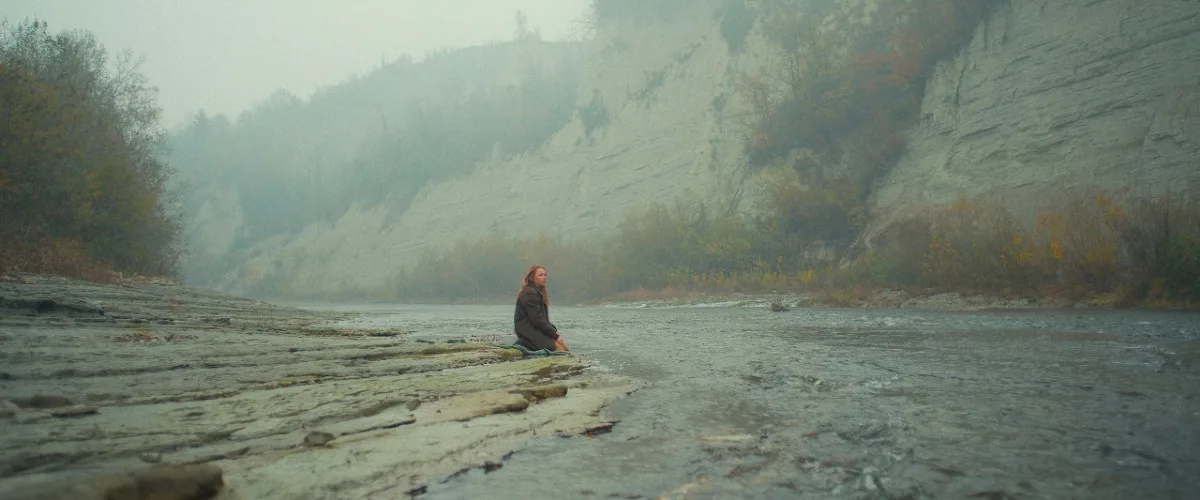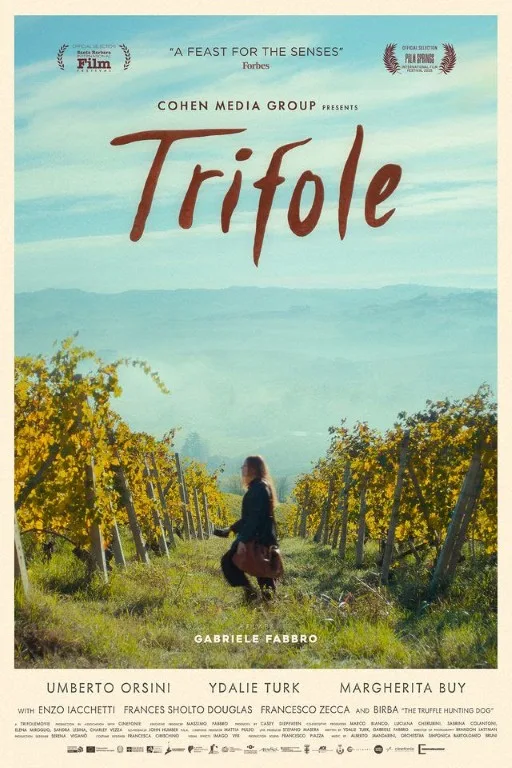Gabriele Fabbro’s “Trifole” starts as a straightforward story about a quickly vanishing way of life before fracturing into the accumulated lore and fairy tales still resonating in the Langhe province of Italy, home to the mighty Alba White truffle. (The 2020 film “The Truffle Hunters” takes place in the same region.) Anne Shirley of Anne of Green Gables would say that truffle hunting provides “scope for imagination,” as evidenced by the number of films featuring them. “Trifole” is whimsical, sometimes self-consciously so, and its blend of fairy-tale elements has a clear purpose but results in some structural awkwardness. (Fabbro co-wrote the script with Ydalie Turk, one of the two central actors, and they wove into it stories they heard from people in the region.) It has clearly been made with a lot of love and care.
The landscape of Piedmont is the “star” in the opening sequence, as Dalia (Turk) arrives at a small train station and walks to find the home of her grandfather, Igor (Umberto Orsini), an aging truffle hunter living alone with his dog Birba. Dalia, clutching her phone, walks through small towns, stalks through vineyard rows, wanders across fields. There aren’t many people around. Cinematographer Brandon Lattman does gorgeous work throughout, capturing the softness and warmth of the light in this landscape, everything emanating from a rural stillness. Igor is not expecting Dalia. In fact, he does not remember her and calls her “Marta,” Dalia’s mother’s name. Dalia has lived in London for most of her life, and her Italian is minimal. Marta (Margherita Buy), seen in video chats with Dalia, wants her daughter to scope it out and see how Igor is doing.
Igor is not doing well. His house is rundown, and he is losing his memory. The adorable Birba accompanies him on his truffle foraging expeditions. Vineyards press up against Igor’s property on every side, and he’s being evicted (he ignores the notifications). His house may be falling apart, but it has immense charm, as a quiet place time forgot. We are told we aren’t supposed to hold on to the past. Fair enough, but does that mean we should just throw it out? Igor’s house is not just a house. It’s connected to centuries of history. Losing it would be the cessation of a whole way of life. Igor scribbles little maps in his truffle notebook, keeping track of his finds, plotting new places to forage.
The tone shift, when it comes, is swift and disorienting. There has been a sense of strangeness in the film from the start, since Igor is so close to the old ways. He tells her of signs from Jupiter, and the lightning and rainfall that bring perfect truffle-hunting conditions. Dalia, a distracted and vaguely dissatisfied young woman, becomes invested in Igor’s world. When Dalia and Birba go out on their own truffle hunt, mistakes pile up. It’s hard work, the hiking and digging, the cold and the wet. Something magical happens, something tragic follows, and suddenly the world tilts into the fantastical. Dalia isn’t just looking for truffles. She’s on a quest. Dark forces seek to impede her progress. It’s easy to believe in witches when you’re alone in those woods. Dalia runs all the way back to Igor’s, through the towns and vineyards and fields we saw her pass through before, but now, the world is different.
A stand-out sequence, unlike anything else in the film, either in landscape, atmosphere, or mood, is the Alba fair, a regional event complete with a high-end truffle auction. Dalia basically crashes the event, ending up, somehow, in a medieval-era gown, a crown on her head, and joining the procession of princesses who carry the prize-winning truffles into the auction hall. It is the fairy tale meeting the modern world. Suddenly, everything is filmed with a hand-held camera, a stark departure from the leisurely slow pace of all that came before.
Dalia pretending to be a princess is pure screwball. She even pretends to faint at one point, to avoid a task she doesn’t want to do, invoking the wrath of the other already-annoyed princesses. Suddenly, a film with just three characters (Igor, Dalia, Birba) turns into a crowd scene. Dalia’s truffle quest in the woods turned into a fairy tale quest, and so it doesn’t seem odd to see her running through nightclub parties wearing a crown, or up endless flights of stairs, holding her princess gown up so she won’t trip. I could have watched a whole movie about that crazed woman in a princess gown crashing parties and wreaking havoc.
No fairy godmother is waving her magic wand to secure Igor’s house, to make sure the delicate thread with the past is not severed. Progress can be positive. But there is a cost. There are casualties. Entire professions vanish from the earth with every technological advancement. Old traditions aren’t just “ways of doing things”. Traditions are people’s stories, connecting them to their ancestors, to this patch of ground. Knowledge is passed down literally—recipes, sewing patterns, hand-drawn truffle maps—but also symbolically; myths, fables, fairy tales. You can’t put a price on any of it, and that, ultimately, is what “Trifole” is all about.




















